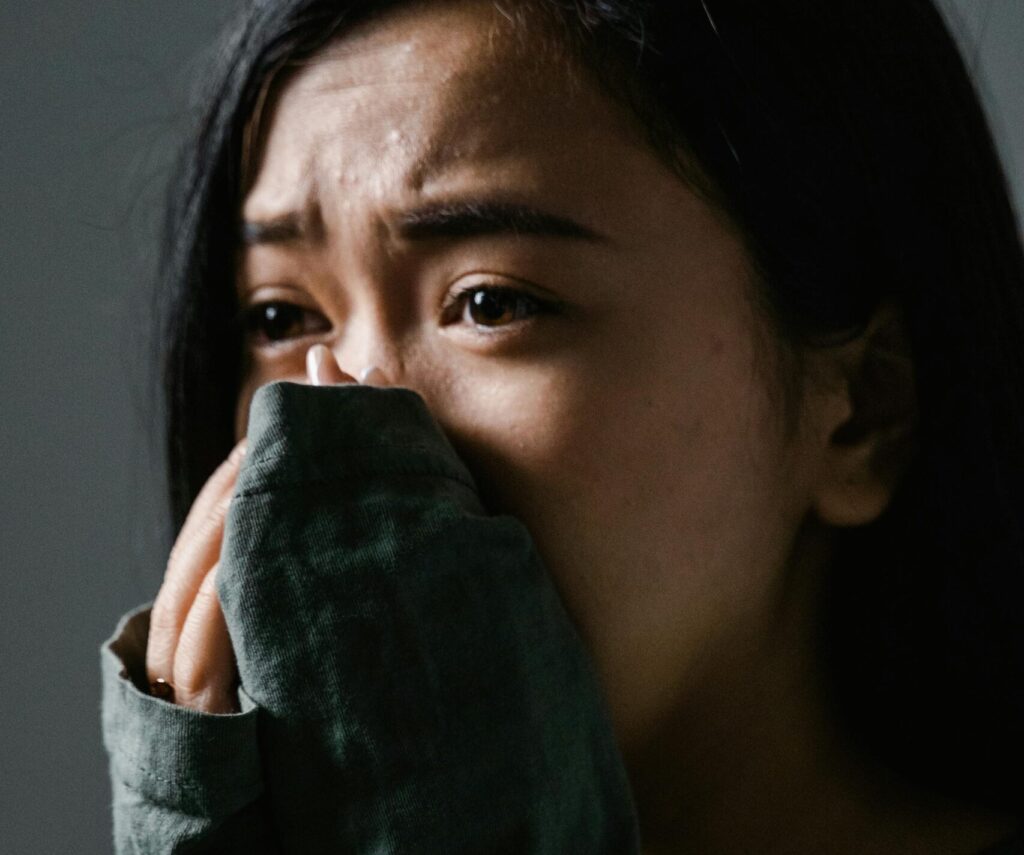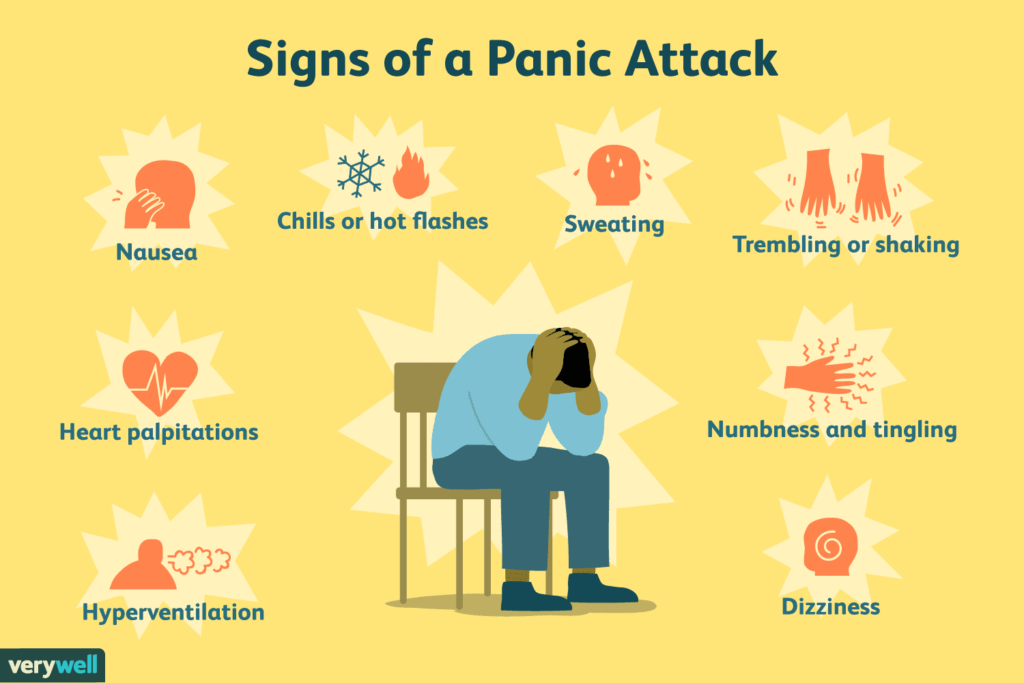ANXIETY DISORDERS
Best Psychiatrists For Anxiety Disorders Treatment In Lagos
Overcome Your Anxiety Disorders With Support From Our Expert Psychiatrists in Lagos
Ready to reclaim control from anxiety? Our tailored approach equips you with the tools and support essential for liberation. With our expert psychiatrists in Lagos, conquer generalized anxiety, panic disorder, social anxiety, or any other anxiety-related challenge.
Bid farewell to perpetual worry and embrace tranquility. It's time to begin your path towards a brighter, healthier future.

Anxiety Disorders Exposed - 1 in 6 Worldwide, 3.5% in Lagos Nigeria Afflicted
Anxiety disorders are pervasive and debilitating conditions that go beyond occasional worries. Individuals afflicted with these disorders experience relentless and overwhelming fear, disrupting their daily lives. From generalized anxiety disorder to panic attacks and social anxiety disorder, the spectrum is broad.
These disorders are not rare occurrences; they affect a significant portion of the global population, with statistics indicating that 1 in 6 adults grapple with anxiety disorders.
In Lagos, Nigeria, the burden is particularly pronounced, with reported prevalence rates of 5.5% for depression and 3.5% for anxiety, underlining the urgent need for effective interventions and support.
Recognizing the Signs of Anxiety Disorders
Many individuals may encounter these symptoms of anxiety even in the absence of feeling anxious.
However, if these symptoms endure for two or more weeks and are not attributable to a clear trigger such as the death of a loved one, substance use, or health concerns, it may indicate anxiety.

Physical Symptoms
Recognize physical signs of anxiety – rapid heartbeat, sweating, shortness of breath and restlessness.

Emotional Indicators
Understand emotional manifestations such as constant uncontrollable worry, fear, and panic attacks. Feeling tired and drained most of the time.

Behavioural Cues
Identify behavioral cues like irritability, insomnia, and difficulty concentrating.
Why Choose Lifecrest Wellness Space For Your Anxiety Disorder Treatment?
Our psychiatrists are highly trained professionals with years of experience in treating anxiety disorders. You can trust us to provide you with the highest quality care.
We understand that every individual is different, and there’s no one-size-fits-all solution to anxiety disorders. That’s why we take the time to listen to your concerns and develop a personalized treatment plan that addresses your specific needs.
From therapy and medication management to lifestyle modifications and coping strategies, we offer a comprehensive range of services to help you manage your anxiety and live a fulfilling life.
We strive to create a warm and welcoming environment where you can feel comfortable discussing your concerns openly. Our compassionate team is here to provide you with the support and encouragement you need every step of the way.
The Proof Is In The Pudding
DISCOVER WHAT PATIENTS OF LIFECREST WELLNESS SPACE HAVE TO SAY...
I can't express enough gratitude to the team at Lifecrest Wellness Space for their exceptional anxiety disorder treatment. Suffering for years, I felt hopeless until I found them. Their tailored approach, compassionate care, and expert guidance transformed my life. I'm now equipped with invaluable tools to manage my anxiety, and I finally feel like myself again. Highly recommend to anyone seeking relief from anxiety disorders!
Life-changing experience! Lifecrest Wellness Space provided me with exceptional care and support during my anxiety disorder treatment. The therapists were incredibly knowledgeable and compassionate, guiding me through evidence-based strategies that truly transformed my life. I'm forever grateful for their expertise and dedication.
Exceptional care, exceptional results! Lifecrest Wellness Space is the gold standard for anxiety disorder treatment. The therapists not only provided me with invaluable coping mechanisms but also fostered a nurturing environment where I felt safe to explore my emotions. Thanks to their unwavering support and guidance, I've overcome obstacles I never thought possible. Lifecrest Wellness Space truly changed my life. Five stars all the way!
Types of Anxiety Disorders
Anxiety disorders manifest in diverse forms, with intensity levels ranging from mild to severe.
Below, we present a simplified breakdown of several types.

Generalized Anxiety Disorder
Generalized Anxiety Disorder (GAD) is a persistent condition characterized by prolonged and excessive worry. Individuals grappling with GAD often find themselves consumed by concerns regarding various aspects of daily life, such as work or school obligations, familial ties, friendships, physical well-being, and financial stability.
They tend to anticipate worst-case scenarios and frequently dwell on negative thoughts. This anxiety can range from mild to severe in intensity. At Lifecrest Welleness Space, we provide evidence-based treatment options tailored to address generalized anxiety disorder effectively.
For more details on our offerings, including testimonials from previous clients, click here. GAD stands as the most prevalent anxiety disorder.

Panic Disorder
Panic Disorder entails unexpected and recurrent episodes of intense fear accompanied by physical symptoms.
Those affected by this disorder undergo sudden and overwhelming sensations of anxiety, fear, or terror, typically reaching their peak within minutes, known as panic attacks. These attacks often manifest with physical symptoms like rapid heart rate (palpitations), sweating, breathlessness, chest pain, and nausea.
Individuals who experience panic attacks often harbor apprehensions about their recurrence, often resorting to avoidance strategies concerning situations or places where such episodes have previously unfolded.

Social Anxiety Disorder
Social Anxiety Disorder also referred to as social phobia, encompasses an incapacitating dread of social interactions and performance scenarios.
Individuals grappling with this disorder endure heightened levels of anxiety and fear in situations where they anticipate scrutiny from others. Such situations may involve interpersonal interactions (e.g., meeting new individuals), being observed during routine activities (e.g., eating or drinking in public), or performing in front of an audience (e.g., delivering a presentation or speech).
Those afflicted with social anxiety disorder often employ avoidance tactics to evade these situations, driven by a desire to circumvent feelings of self-consciousness and embarrassment.

Specific Phobias
Specific Phobias are characterized by an intense fear of particular objects or situations, leading to distress and avoidance behaviors. Individuals with specific phobias experience heightened fear or anxiety triggered by specific stimuli.
Consequently, they actively avoid encountering the feared object or situation. For some individuals, phobias can induce panic attacks.
Common examples include arachnophobia (fear of spiders), ophidiophobia (fear of snakes), acrophobia (fear of heights), aerophobia (fear of flying), cynophobia (fear of dogs), astraphobia (fear of thunder and lightning), trypanophobia (fear of injections), social phobia (fear of social situations), agoraphobia (fear of being in situations with no easy escape), and mysophobia (fear of germs and dirt).

Illness Anxiety Disorder
Illness Anxiety Disorder Commonly known as health anxiety, falls under the category of Somatic Symptoms and Related Disorders.
Individuals with this disorder exhibit persistent concerns about their physical health, fixating on the possibility of having or developing a severe illness.
This preoccupation often leads to behaviors such as seeking reassurance through excessive online searches or frequent medical check-ups, as well as repeatedly examining their bodies for signs of illness, reinforcing their focus on health. For further insights into health anxiety, visit our blog.

Separation Anxiety Disorder
Separation Anxiety Disorder involves intense fear or anxiety surrounding separation from an attachment figure, such as a parent or romantic partner.
Those affected by this disorder struggle with the prospect of being apart from their attachment figure, sometimes displaying reluctance or refusal to be separated from them.
Additionally, they may experience recurring nightmares about separation and report physical symptoms either during periods of separation or merely when contemplating it.
Other Types of Anxiety Disorders Not Covered Here Include:
- Selective mutism
- Agoraphobia
- Anxiety disorder due to another medical condition
- Other specified anxiety disorder
- Unspecified anxiety disorder
What Causes Anxiety Disorders?
Anxiety is widespread. Similar to depression, women experience it almost twice as much as men; although men are less likely to reach out for help and usually when they do it’s more severe.
There are many factors that are linked to anxiety. Some of the contributors are:
Biological Factors: Research indicates that an individual’s biological makeup plays a significant role in their susceptibility to anxiety. Factors such as specific genes, temperamental traits, brain functioning, and neurotransmitter levels are linked to the development of anxiety disorders.
- Learning Mechanisms: Anxiety can be acquired through different learning processes. Observational learning involves adopting fears by observing others’ reactions to fear-inducing stimuli. For example, witnessing a caregiver’s strong fear reactions to spiders during childhood may lead to the development of arachnophobia. Conditioning, including classical conditioning, contributes to anxiety development by forming associations between stimuli over time. For instance, Little Albert’s conditioning to fear white mice illustrates how fears can generalize to similar objects. Operant conditioning reinforces anxiety-related behaviors; for instance, avoiding anxiety-provoking situations may temporarily reduce anxiety but perpetuate it in the long term.
- Psychological Factors: Experiences such as abuse, significant life stressors, and overprotective parenting can trigger anxiety disorders. Research suggests that individuals who have undergone such experiences are at a heightened risk of developing specific anxiety disorders.
Does Any of This Sound Familiar?
Just remember – the most important thing is to be aware of, and recognize, the symptoms of anxiety and seek professional, licensed support using evidence-based effective treatments.
How Is Anxiety Disorder Treated At Lifecrest Wellness Space?
We offer several different treatment options at Lifecrest Wellness Space.
Cognitive Behavioural Therapy (CBT)
Cognitive Behavioural Therapy is highly effective in treating Anxiety Disorders. The focus of this technique is on identifying and applying practical solutions to the triggers and symptoms of the disorder in a client. CBT is typically conducted over 8-12 sessions, with each session lasting one hour and occurring weekly. During these sessions, the therapist assists clients in learning, unlearning, and relearning skills for symptom management and the development of healthy habits. CBT can be provided in either individual or group sessions. The emphasis is usually on behavior because when clients change their behavior, their overall symptoms generally reduce significantly.
Integrative Therapy
In integrative therapy, the therapist combines multiple therapy models, such as CBT, Family Systems Model, Gestalt, etc., with other supportive therapeutic interventions like meditation and medication. This type of therapy benefits the client by incorporating various research-based methods, thereby providing the therapist with more tools to work with.
Medication
Several medications are used to relieve the symptoms of anxiety disorders. Certain antidepressants and anti-anxiety medications may be prescribed for the relief of symptoms. In rare circumstances, the psychiatrist may prescribe certain sedatives; these medications are usually for short-term relief of symptoms and are not intended for long-term use. The best thing to do is to talk to the psychiatrist about how you can benefit, about the risks, and possible side effects of medications.
Relaxation Techniques
Relaxation techniques such as yoga, meditation, and deep breathing help clients relieve tension and stress, which are common symptoms of anxiety disorder. Techniques like progressive muscle relaxation target symptoms such as tension. Breathing exercises target symptoms such as panic attacks, while meditation brings calm to the mind and addresses symptoms of mindlessness, among others.
Support Groups
This is a therapy session with other clients. Here, the therapist pairs clients who share similar experiences. The goal is to facilitate interaction among peers, allowing them to listen to each other's experiences and offer suggestions. The primary objective is to learn about oneself, identify triggers, and discover new ways to alleviate anxious feelings. Mutual support plays a significant role in facilitating effective recovery.
What Do We Do During A Session?
What we do in a session will depend on the type of treatment that you are receiving. CBT is a structured talk therapy session with activities and exercises. Integrative psychotherapy offers an unstructured talk therapy session where we explore whatever the client wants to focus on.
Why Should You Work With Us?
We are warm, empathic, experienced, and non-judgmental mental health professionals. We combine the latest research and best practices with your goals to give you the best tools in our confidential and affordable anxiety therapy sessions.
Apply Now to Discuss Your Anxiety Disorder With Us and Let's Find Solutions Together!
Anxiety is both common and very treatable. Your life and well-being are important. We are here to support you.








Chioma N.